In Focus This Week
Extra, extra, read (and listen) all about it
A list of sources for go-to information on democracy and election administration
By M. Mindy Moretti
electionline.org
With another summer of reading now behind us, it’s time to put down the beach reads and get back to the business at hand.
And with that in mind, we reached out to a number of state and local elections officials, researchers and stakeholders in the elections administration realm to find out, other than electionline.org (OF COURSE), what newsletters, blogs, Substacks, etc. they are reading and podcasts they are listening to.
This list is by no means exhaustive and we’ve kept it to mostly a national focus although we did get some good state-specific recommendations from folks as well. If you’re reading or listening to something that’s not listed, let us know and we’ll update the list in a future edition of electionlineWeekly.
Thank you to everyone who responded to our inquiry!
Newsletters
Anchor Change – Your go-to guide for navigating the intersection of technology, democracy, and the decisions shaping  our world.
our world.
Bipartisan Policy Center – The Bipartisan Policy Center’s Elections Project develops and advances durable bipartisan policy solutions to create secure, accessible, and trustworthy elections. Sign up for our newsletter to get monthly updates on our latest research, events, and more!
Ballotpedia – Ballotpedia is the digital encyclopedia of American politics, and the nation’s premier resource for unbiased information on elections, politics, and policy. The Daily Brew is Ballotpedia’s daily newsletter.
The Canvass – A monthly newsletter from the National Conference of State Legislatures focusing on election administration and legislation. To sign-up, send an email to elections-info@ncsl.org.
U.S. Election Assistance Commission – The EAC has a monthly newsletter which features a summary of new updates, events, resources, and news.
Votebeat – Votebeat has four state-specific newsletters–Arizona, Michigan, Pennsylvania and Wisconsin–that are delivered twice per month and a weekly national newsletter that drops on Saturday morning.
Voting Rights Lab – Voting Rights Lab is a nonpartisan, 501(c)(3) nonprofit, state-focused organization with a national perspective. Our comprehensive election policy analysis, research, and data provide uniquely actionable insights to our partners and the public. The VRL has two newsletters, The Lever, their monthly newsletter with valuable analysis and insights and The Markup, a weekly analysis of the latest election policy issues and trends.
Substacks
AI & Elections Clinic – Depending on whom you ask, artificial intelligence is either the magic fix for every election problem or the source of a whole new set of headaches. Our newsletter won’t promise miracles or doom, but it will give  you a front-row seat to the conversation. Here, we’ll help election officials make sense of both the opportunities and the challenges that AI brings. Housed in Arizona State University’s Mechanics of Democracy Laboratory (MODL) and partnered with The Elections Group, the ASU AI & Elections Clinic was developed in line with recommendations from the Arizona Secretary of State’s AI and Election Security Advisory Committee, and is designed to be the place that tracks, nudges, slows, and shows how artificial intelligence and elections interact in the years ahead.
you a front-row seat to the conversation. Here, we’ll help election officials make sense of both the opportunities and the challenges that AI brings. Housed in Arizona State University’s Mechanics of Democracy Laboratory (MODL) and partnered with The Elections Group, the ASU AI & Elections Clinic was developed in line with recommendations from the Arizona Secretary of State’s AI and Election Security Advisory Committee, and is designed to be the place that tracks, nudges, slows, and shows how artificial intelligence and elections interact in the years ahead.
Democracy Notes – Democracy Notes helps you stay up to speed on the US democracy space. It’s a go-to source for jobs, philanthropy news, and more.
Decision Desk HQ– Home to Decision Desk HQ’s analysis of U.S. elections and politics, led by The Bellwether newsletter.
Expand Democracy – Hi there, we are Expand Democracy: a federally recognized nonprofit that seeks to catalyze consideration and action in support of promising pro-democracy ideas and strategies – with a focus on the United States, but interest in connecting with pro-democracy policies, initiatives, and conversations in other nations. We support existing reform efforts and draw attention to ways of advancing new ideas and strategies. Given our size, we do not do all of the following simultaneously, but prioritize where we can be most impactful.
Election Science Field Notes – From R. Michael Alvarez, the Flintridge Foundation Professor of Political and Computational Social Science at Caltech: Data, not drama.
If You Can Keep It – In 1787, Benjamin Franklin was asked: what kind of government have you created? He answered, “a republic — if you can keep it.” From Protect Democracy, a nonpartisan, nonprofit group working to prevent authoritarianism.
Playing With Election Data – From Charles Stewart, Kenan Sahin (1963) Distinguished Professor of Political Science and founder of the MIT Election Data and Science Lab: I like playing with election data, both analyzing and visualizing it.
Blogs
Election Law Blog: The Election Law Blog is from Rich Hasen, the Gary T. Schwartz Endowed Chair in Law, Professor of Political Science and director, Safeguarding Democracy Project at UCLA.
Podcasts
While we highlight elections-related podcasts each week (or as often as they post) in the Election News This Week  section, we wanted to point out a few for you to bookmark!
section, we wanted to point out a few for you to bookmark!
Election Science Office Hours: Let’s help voters be confident that their ballots are counted as cast. Honest conversations between Caltech professor and election expert R. Michael Alvarez and elections officials, researchers and other stakeholders about elections.
High Turnout Wide Margins: Boone County, Missouri Clerk Brianna Lennon and St. Louis County, Missouri Director of Elections Eric Fey host conversations with subject-matter elections experts and local election administrators to ask the questions that are most meaningful to their work, and discuss how to best approach issues like voter education, cybersecurity, and integrity.
Pantsuits & Lawsuits: Pantsuits & Lawsuits is a no holds barred podcast featuring Michigan Attorney General Dana Nessel and Arizona Attorney General Kris Mayes as they break down the biggest legal and political battles shaping the nation. With sharp wit and deep expertise, these two trailblazing AGs will keep you informed on what’s in their offices, how they’re fighting to protect your rights, and what’s at stake in the courts.
Terms of Engagement: From ranked choice voting to reconciliation, American democracy is headline news. Let’s talk about it. Join Harvard Ash Center’s Archon Fung and Stephenn Richer for a weekly conversation about the latest developments in American politics. Blending perspectives from both the political right and left, Terms of Engagement addresses breaking news, providing insights from research and practice to deliver a unique perspective you won’t hear anywhere else.
The Voting Booth: The American Enterprise Institute’s John Fortier and EAC Commissioner Don Palmer pull back the curtain of the Voting Booth to reveal the inner workings of elections. They are joined by secretaries of state, local election officials, scholars and lawyers to examine issues leading election administration.
electionline Daily News Email
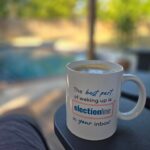 What’s the best part of waking up? electionline Daily News in your inbox of course so be sure to sign up for your daily dose.
What’s the best part of waking up? electionline Daily News in your inbox of course so be sure to sign up for your daily dose.
Each morning you’ll receive the top headlines of the day, plus a listing of states featured in that day’s news round up.
To sign up, simply visit our site and provide us with your email and you’ll begin receiving the news in your inbox each morning.
We Google so you don’t have to!
Election News This Week
 Federal Update: Late last week, on his Truth Social account, President Donald Trump said he will issue an executive order mandating voter identification for every voter, an announcement that follows his move in March requiring proof of citizenship in federal elections and baseless claims of voter fraud to argue the 2020 presidential election was stolen from him. “Voter I.D. Must Be Part of Every Single Vote. NO EXCEPTIONS! I Will Be Doing An Executive Order To That End!!!,” Trump said on Truth Social on August 30. “Also, No Mail-In Voting, Except For Those That Are Very Ill, And The Far Away Military.” He did not say what type of identification he wants to require, when he would sign the order or why he has the authority to impose the rule. On August 30, the U.S. Citizenship and Immigration Services issued a policy change banning third-party groups from conducting voter registration drives at citizenship ceremonies. The policy says “that only state and local election officials will be permitted to offer voter registration services at the end of administrative naturalization ceremonies.” Groups like the League of Women Voters criticized the decision. They often partner with local and state election officials or supplement their work to administer registration services — and that includes during naturalization ceremonies. Celina Stewart, CEO of the League of Women Voters, said in a statement that this new policy “is an attempt to keep new citizens from accessing their full rights.”
Federal Update: Late last week, on his Truth Social account, President Donald Trump said he will issue an executive order mandating voter identification for every voter, an announcement that follows his move in March requiring proof of citizenship in federal elections and baseless claims of voter fraud to argue the 2020 presidential election was stolen from him. “Voter I.D. Must Be Part of Every Single Vote. NO EXCEPTIONS! I Will Be Doing An Executive Order To That End!!!,” Trump said on Truth Social on August 30. “Also, No Mail-In Voting, Except For Those That Are Very Ill, And The Far Away Military.” He did not say what type of identification he wants to require, when he would sign the order or why he has the authority to impose the rule. On August 30, the U.S. Citizenship and Immigration Services issued a policy change banning third-party groups from conducting voter registration drives at citizenship ceremonies. The policy says “that only state and local election officials will be permitted to offer voter registration services at the end of administrative naturalization ceremonies.” Groups like the League of Women Voters criticized the decision. They often partner with local and state election officials or supplement their work to administer registration services — and that includes during naturalization ceremonies. Celina Stewart, CEO of the League of Women Voters, said in a statement that this new policy “is an attempt to keep new citizens from accessing their full rights.”
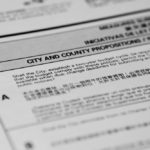 Ballot News: Ballots–the counting of and the type of–were in the news in at least states this week. In Georgia, according to the Atlanta Journal-Constitution, key lawmakers called for a rapid test-run of hand-marked paper ballots in this year’s elections, switching from touchscreens in some polling places. A switch would comply with part of a state law passed last year requiring the elimination of computerized QR codes from ballots by July 1, 2026. Two House Republican committee chairmen stressed “the urgency of the matter” in a letter to Secretary of State Brad Raffensperger. In response, Raffensperger’s office said Tuesday a test of hand-marked paper ballots isn’t allowed under Georgia law, which requires all counties to use a uniform voting system with touchscreens and ballot scanners. Raffensperger has defended the security and accuracy of Georgia’s voting system, saying audits repeatedly show Georgia’s vote counts are correct. “No matter how you look at it, it’s never been easier to vote, and it’s hard to cheat,” Raffensperger said last month. “We verify how accurate the machines were versus the hand-marked paper ballots, and the machines have never had an error yet.” And in Texas, according to the Dallas Morning News, the Dallas County Republican Party is exploring the idea of hand-counting thousands of ballots during its March 3, 2026 primary. Chairman Allen West told the paper the party’s executive committee will discuss five “courses of action” that could include hand-marked paper ballots and hand-counting during early voting or on election day.
Ballot News: Ballots–the counting of and the type of–were in the news in at least states this week. In Georgia, according to the Atlanta Journal-Constitution, key lawmakers called for a rapid test-run of hand-marked paper ballots in this year’s elections, switching from touchscreens in some polling places. A switch would comply with part of a state law passed last year requiring the elimination of computerized QR codes from ballots by July 1, 2026. Two House Republican committee chairmen stressed “the urgency of the matter” in a letter to Secretary of State Brad Raffensperger. In response, Raffensperger’s office said Tuesday a test of hand-marked paper ballots isn’t allowed under Georgia law, which requires all counties to use a uniform voting system with touchscreens and ballot scanners. Raffensperger has defended the security and accuracy of Georgia’s voting system, saying audits repeatedly show Georgia’s vote counts are correct. “No matter how you look at it, it’s never been easier to vote, and it’s hard to cheat,” Raffensperger said last month. “We verify how accurate the machines were versus the hand-marked paper ballots, and the machines have never had an error yet.” And in Texas, according to the Dallas Morning News, the Dallas County Republican Party is exploring the idea of hand-counting thousands of ballots during its March 3, 2026 primary. Chairman Allen West told the paper the party’s executive committee will discuss five “courses of action” that could include hand-marked paper ballots and hand-counting during early voting or on election day.
 Podcast News: High Turnout Wide Margins recently traveled to the 40th annual Election Center conference in Salt Lake City, Utah, and spoke with election administrations and officials from across the county about how they do the work of elections in their communities. In this episode, hosts Eric Fey and Brianna Lennon speak with Eddy Zerbe. He’s the deputy director of the Students Learn Students Vote Coalition, which works to engage college-aged voters. They spoke about some of the barriers that college-aged and first-time voters commonly face and how election administrators can work directly with students to educate and empower them to use their vote. On the newest episode of The Voting Booth from the American Enterprise Institute, co-hosts John Fortier and Don Palmer are joined by Derek Bowens, director of elections of the Durham County (NC) Board of Elections to talk about running elections in a college town. On the latest installment of The Election Science Office Hours Michael Alvarez (Caltech) and his guest, Natalie Masuoka (UCLA) have a conversation on the “Potential Impacts of Redistricting on California’s Asian Americans.” Josh Findlay, host of the Election Protection Podcast, sat down with West Virginia Secretary of State Kris Warner for a wide-ranging conversation on his path to becoming secretary of state, election integrity priorities, and the 2026 election. From his recent White House meeting on election integrity to the essential role of poll workers, Warner shared his perspective on keeping West Virginia’s elections safe, secure, and fair.
Podcast News: High Turnout Wide Margins recently traveled to the 40th annual Election Center conference in Salt Lake City, Utah, and spoke with election administrations and officials from across the county about how they do the work of elections in their communities. In this episode, hosts Eric Fey and Brianna Lennon speak with Eddy Zerbe. He’s the deputy director of the Students Learn Students Vote Coalition, which works to engage college-aged voters. They spoke about some of the barriers that college-aged and first-time voters commonly face and how election administrators can work directly with students to educate and empower them to use their vote. On the newest episode of The Voting Booth from the American Enterprise Institute, co-hosts John Fortier and Don Palmer are joined by Derek Bowens, director of elections of the Durham County (NC) Board of Elections to talk about running elections in a college town. On the latest installment of The Election Science Office Hours Michael Alvarez (Caltech) and his guest, Natalie Masuoka (UCLA) have a conversation on the “Potential Impacts of Redistricting on California’s Asian Americans.” Josh Findlay, host of the Election Protection Podcast, sat down with West Virginia Secretary of State Kris Warner for a wide-ranging conversation on his path to becoming secretary of state, election integrity priorities, and the 2026 election. From his recent White House meeting on election integrity to the essential role of poll workers, Warner shared his perspective on keeping West Virginia’s elections safe, secure, and fair.
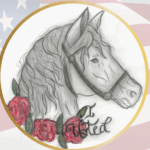 Sticker News: Congratulations to Alyson Marinich of Bluegrass Middle School in Hardin County who is the winner of the Kentucky statewide 2025 “I Voted” Sticker Contest. Secretary of State Michael Adams the winner last week. “Thanks to Alyson for helping us promote voting and reminding us that any Kentuckian can make a difference,” Adams said. Alyson’s hand-drawn design featured a horse with a rose garland. “I’m proud that people in my state voted for what I worked on and that people will get to see it and use it in May,” said Marinich. “I got to go up to the fair and vote for my design, which was really cool. I am just really proud and glad people liked my design.” Nearly 4,000 Kentuckians voted in the sticker contest at the Kentucky State Fair from August 14-24, doubling the number of votes cast during the inaugural “I Voted” Sticker Contest in 2024. Hardin County will receive “I Voted” stickers featuring Alyson’s design from the Secretary of State’s Office. Other county clerks may request to have the redesigned sticker to provide to voters during the May 2026 primary election.
Sticker News: Congratulations to Alyson Marinich of Bluegrass Middle School in Hardin County who is the winner of the Kentucky statewide 2025 “I Voted” Sticker Contest. Secretary of State Michael Adams the winner last week. “Thanks to Alyson for helping us promote voting and reminding us that any Kentuckian can make a difference,” Adams said. Alyson’s hand-drawn design featured a horse with a rose garland. “I’m proud that people in my state voted for what I worked on and that people will get to see it and use it in May,” said Marinich. “I got to go up to the fair and vote for my design, which was really cool. I am just really proud and glad people liked my design.” Nearly 4,000 Kentuckians voted in the sticker contest at the Kentucky State Fair from August 14-24, doubling the number of votes cast during the inaugural “I Voted” Sticker Contest in 2024. Hardin County will receive “I Voted” stickers featuring Alyson’s design from the Secretary of State’s Office. Other county clerks may request to have the redesigned sticker to provide to voters during the May 2026 primary election.
Personnel News: James Yokeley Jr. has resigned as the chairman of the Surry County, North Carolina board of elections. Mark Hubler is the new Auglaize County, Ohio Board of Elections director. Michele Brant has been sworn-in as the new Madison County, Iowa auditor. Daymian Bartek is the new Northborough, Massachusetts town clerk. Congratulations to Wausau, Wisconsin City Clerk Kaitlyn Bernarde for being awarded the inaugural Rising Star Award from the statewide municipal clerk association. Grace Bannasch is the new Groton, Massachusetts town clerk. Monica Yatooma, an Oakland County businesswoman announced she’ll seek the GOP nomination for Michigan secretary of state next year.
 In Memoriam: Bill Diamond, former Maine secretary of state, has died. He was 80. Diamond served in the Maine House from 1976 to 1982, then served in the state Senate from 1982 to 1986. He was secretary of state from 1989 to 1997. Years later, he ran for the state Senate, serving from 2004 to 2012 and again from 2014 to 2022. In 2023 he launched Walk a Mile in Their Shoes, a group dedicated to protecting children from abuse and neglect.Secretary of State Shenna Bellows, a Democrat, praised Diamond for serving as a mentor when she became secretary of state and for helping to pass funding for Bureau of Motor Vehicles services. “He was an extraordinary voice for reform of child protective services to protect every Maine child,” Bellows wrote on Facebook. Diamond served as a vocal critic of the state’s child welfare system, repeatedly calling for it to be separated from the larger state Department of Health and Human Services. He attended many of the trials following child deaths and became friends with surviving family members who continued to grieve their loss for years.
In Memoriam: Bill Diamond, former Maine secretary of state, has died. He was 80. Diamond served in the Maine House from 1976 to 1982, then served in the state Senate from 1982 to 1986. He was secretary of state from 1989 to 1997. Years later, he ran for the state Senate, serving from 2004 to 2012 and again from 2014 to 2022. In 2023 he launched Walk a Mile in Their Shoes, a group dedicated to protecting children from abuse and neglect.Secretary of State Shenna Bellows, a Democrat, praised Diamond for serving as a mentor when she became secretary of state and for helping to pass funding for Bureau of Motor Vehicles services. “He was an extraordinary voice for reform of child protective services to protect every Maine child,” Bellows wrote on Facebook. Diamond served as a vocal critic of the state’s child welfare system, repeatedly calling for it to be separated from the larger state Department of Health and Human Services. He attended many of the trials following child deaths and became friends with surviving family members who continued to grieve their loss for years.
New Research & Reports
 Updated Pocket Guides: The Committee for Safe and Secure Elections (CSSE) recently released updated 2025 Law Enforcement Quick Reference Guides for all 50 states and DC. These pocket guides give officers clear, state-specific info to help prevent threats, intimidation, and disruptions at the polls.
Updated Pocket Guides: The Committee for Safe and Secure Elections (CSSE) recently released updated 2025 Law Enforcement Quick Reference Guides for all 50 states and DC. These pocket guides give officers clear, state-specific info to help prevent threats, intimidation, and disruptions at the polls.
![]() Ranked Choice Voting Case Study: From the Center for Civic Design: When King County Elections (KCE) reached out to us asking for support with usability testing in 7 languages, our first thought was: 7? That’s a lot of languages. We’ve done multilingual usability testing before and have written a guide on how to conduct them. But we’ve never conducted a study with this many languages at once. It was a new and exciting challenge. We planned for the test throughout 2024. Then, over a 2-week period in January 2025, we coached KCE through usability testing and synthesis. Along the way, we learned that not only is testing in this many languages possible, it’s absolutely doable! It can also lead to valuable insights that make multilingual voting materials clearer and more effective. We’re sharing this case study to give a behind-the-scenes look at the process. Whether you’re thinking about adding 1 more language, 5 more, or just getting started, we hope it helps you design and run your own multilingual testing.
Ranked Choice Voting Case Study: From the Center for Civic Design: When King County Elections (KCE) reached out to us asking for support with usability testing in 7 languages, our first thought was: 7? That’s a lot of languages. We’ve done multilingual usability testing before and have written a guide on how to conduct them. But we’ve never conducted a study with this many languages at once. It was a new and exciting challenge. We planned for the test throughout 2024. Then, over a 2-week period in January 2025, we coached KCE through usability testing and synthesis. Along the way, we learned that not only is testing in this many languages possible, it’s absolutely doable! It can also lead to valuable insights that make multilingual voting materials clearer and more effective. We’re sharing this case study to give a behind-the-scenes look at the process. Whether you’re thinking about adding 1 more language, 5 more, or just getting started, we hope it helps you design and run your own multilingual testing.
Ballot Measures, Legislation & Rulemaking
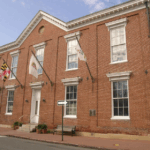 Annapolis, Maryland: Legislation before the City Council would see Annapolis implement ranked choice voting by 2029, meaning voters would be allowed to rank candidates — up to as many as are running in any particular race — in order of their preference. “It makes our elections kinder and fairer,” said Alderman Harry Huntley, who introduced the ranked-choice voting bill in July. “It gives voters more voice and more choice. And it gives independents, which is our fastest-growing group of voters — it brings them into our political process.” In Maryland, Takoma Park has used ranked-choice voting since 2007. According to Whittaker, other municipalities in the state — including Hyattsville, Greenbelt, Rockville and Frederick — are considering the practice.
Annapolis, Maryland: Legislation before the City Council would see Annapolis implement ranked choice voting by 2029, meaning voters would be allowed to rank candidates — up to as many as are running in any particular race — in order of their preference. “It makes our elections kinder and fairer,” said Alderman Harry Huntley, who introduced the ranked-choice voting bill in July. “It gives voters more voice and more choice. And it gives independents, which is our fastest-growing group of voters — it brings them into our political process.” In Maryland, Takoma Park has used ranked-choice voting since 2007. According to Whittaker, other municipalities in the state — including Hyattsville, Greenbelt, Rockville and Frederick — are considering the practice.
Legal Updates
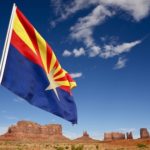 Arizona: An Arizona Appeals Court rejected an attempt by the state Republican Party and conservative groups to restrict the ways county election officials can verify signatures on early ballots. The Arizona Republican Party, Arizona Free Enterprise Club, Restoring Integrity and Trust in Elections, and a Yavapai County voter filed a lawsuit in 2023 challenging state election rules, including the ways county recorders can verify a voter’s signature on their early ballot. The plaintiffs specifically challenged rules allowing election workers to compare the signature on an early ballot to signatures on any other election-related document, including early ballot envelopes from prior elections. They argued state law only allows recorders to use a person’s original voter registration for signature verification. “Certain of these materials, and particularly early ballot envelopes submitted in prior elections, however, are not “registration records,” and hence are not a lawful comparative reference for conducting signature validation,” according to the original lawsuit. In a 2024 ruling, Judge John Napper wrote that an updated version of the Secretary of State’s Election Procedures Manual allows for the use of old ballot envelopes for signature verification. And he found the Arizona Legislature chose to accept that allowance as it updated the state’s election laws. On August 27, an Arizona Court of Appeals panel upheld the lower court ruling. The judges found the Arizona Republican Party and other plaintiffs did not have standing to sue in the first place, according to an opinion authored by Judge Jeffrey Sklar. Sklar wrote that the plaintiffs disagree with the way the Secretary of State Adrian Fontes interpreted the state law governing signature verification, not that Fontes failed to fulfill duties the secretary of state is required to perform. “This amounts to issue advocacy, which as we have explained, cannot confer standing,” Sklar wrote. An attorney for the plaintiffs said they have not yet decided whether to appeal the ruling to the Arizona Supreme Court.
Arizona: An Arizona Appeals Court rejected an attempt by the state Republican Party and conservative groups to restrict the ways county election officials can verify signatures on early ballots. The Arizona Republican Party, Arizona Free Enterprise Club, Restoring Integrity and Trust in Elections, and a Yavapai County voter filed a lawsuit in 2023 challenging state election rules, including the ways county recorders can verify a voter’s signature on their early ballot. The plaintiffs specifically challenged rules allowing election workers to compare the signature on an early ballot to signatures on any other election-related document, including early ballot envelopes from prior elections. They argued state law only allows recorders to use a person’s original voter registration for signature verification. “Certain of these materials, and particularly early ballot envelopes submitted in prior elections, however, are not “registration records,” and hence are not a lawful comparative reference for conducting signature validation,” according to the original lawsuit. In a 2024 ruling, Judge John Napper wrote that an updated version of the Secretary of State’s Election Procedures Manual allows for the use of old ballot envelopes for signature verification. And he found the Arizona Legislature chose to accept that allowance as it updated the state’s election laws. On August 27, an Arizona Court of Appeals panel upheld the lower court ruling. The judges found the Arizona Republican Party and other plaintiffs did not have standing to sue in the first place, according to an opinion authored by Judge Jeffrey Sklar. Sklar wrote that the plaintiffs disagree with the way the Secretary of State Adrian Fontes interpreted the state law governing signature verification, not that Fontes failed to fulfill duties the secretary of state is required to perform. “This amounts to issue advocacy, which as we have explained, cannot confer standing,” Sklar wrote. An attorney for the plaintiffs said they have not yet decided whether to appeal the ruling to the Arizona Supreme Court.
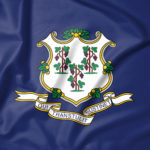 Connecticut: Alfred Castillo, 53 of Bridgeport, has received additional charges in connection with the misuse of absentee ballots during the September 2023 Bridgeport Democratic Primary election. Castillo was charged via an arrest warrant August 29. He was arrested and charged with four counts of possession of ballots and envelopes restricted, four counts of failure to sign as assister on an absentee ballot, and two counts of misrepresenting eligibility requirements for voting by absentee ballot. Castillo was released on a promise to appear in Bridgeport Superior Court on September 2, 2025. Castillo has previously been charged in this incident. In March of 2025, 5 people, including Castillo, were accused of misusing absentee ballots or misrepresenting voter eligibility during the 2023 Bridgeport democratic mayoral primary. Castillo was also charged with the misuse of absentee ballots in June of 2019 in the 2019 Democratic primary in Bridgeport.
Connecticut: Alfred Castillo, 53 of Bridgeport, has received additional charges in connection with the misuse of absentee ballots during the September 2023 Bridgeport Democratic Primary election. Castillo was charged via an arrest warrant August 29. He was arrested and charged with four counts of possession of ballots and envelopes restricted, four counts of failure to sign as assister on an absentee ballot, and two counts of misrepresenting eligibility requirements for voting by absentee ballot. Castillo was released on a promise to appear in Bridgeport Superior Court on September 2, 2025. Castillo has previously been charged in this incident. In March of 2025, 5 people, including Castillo, were accused of misusing absentee ballots or misrepresenting voter eligibility during the 2023 Bridgeport democratic mayoral primary. Castillo was also charged with the misuse of absentee ballots in June of 2019 in the 2019 Democratic primary in Bridgeport.
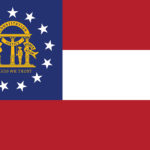 Georgia: A Fulton County judge has put a pause on an order that would have fined the county $10,000 a day for failing to appoint two Republican members to its elections board. The ruling comes one day after the judge initially imposed the steep penalty, which sparked concern from county officials. Fulton County Commission Chairman Robb Pitts said the delay is “great news for the taxpayers of Fulton County.” The case stems from a dispute over appointments to the county’s Board of Registration and Elections. Republicans have argued their nominees have been blocked from taking their seats, while county leaders say the appointments must follow procedural rules.
Georgia: A Fulton County judge has put a pause on an order that would have fined the county $10,000 a day for failing to appoint two Republican members to its elections board. The ruling comes one day after the judge initially imposed the steep penalty, which sparked concern from county officials. Fulton County Commission Chairman Robb Pitts said the delay is “great news for the taxpayers of Fulton County.” The case stems from a dispute over appointments to the county’s Board of Registration and Elections. Republicans have argued their nominees have been blocked from taking their seats, while county leaders say the appointments must follow procedural rules.
 Indiana: The Indiana Citizen filed suit against Indiana’s secretary of state and attorney general, seeking a list of more than 585,000 registered Hoosier voters sent to the federal government to verify citizenship status. The offices have refused to provide it. The Citizen is a nonprofit news outlet operated by the Indiana Citizen Education Foundation, Inc. Reporter Marilyn Odendahl requested the list in October 2024, after Secretary of State Diego Morales and Attorney General Todd Rokita issued news releases about the request. According to the lawsuit, Rokita’s office denied the records request in December last year on behalf of both offices. Odendahl then filed a complaint with then-Indiana Public Access Counselor Luke Britt, who ruled in February that the “denial was improper based on the law as plainly written.” In March, the statewide officeholders sent a letter disagreeing with the ruling, but offered to allow the Citizen “limited public access” consisting of in-person inspection and the ability to make only “a handwritten transcription” of the records. The Citizen objected to the rules but tried to schedule a time to review the list in July. Rokita and Morales asked new Public Access Counselor Jennifer Ruby to reconsider the complaint and withdrew their offer. There has been no further contact between the parties, according to the lawsuit.
Indiana: The Indiana Citizen filed suit against Indiana’s secretary of state and attorney general, seeking a list of more than 585,000 registered Hoosier voters sent to the federal government to verify citizenship status. The offices have refused to provide it. The Citizen is a nonprofit news outlet operated by the Indiana Citizen Education Foundation, Inc. Reporter Marilyn Odendahl requested the list in October 2024, after Secretary of State Diego Morales and Attorney General Todd Rokita issued news releases about the request. According to the lawsuit, Rokita’s office denied the records request in December last year on behalf of both offices. Odendahl then filed a complaint with then-Indiana Public Access Counselor Luke Britt, who ruled in February that the “denial was improper based on the law as plainly written.” In March, the statewide officeholders sent a letter disagreeing with the ruling, but offered to allow the Citizen “limited public access” consisting of in-person inspection and the ability to make only “a handwritten transcription” of the records. The Citizen objected to the rules but tried to schedule a time to review the list in July. Rokita and Morales asked new Public Access Counselor Jennifer Ruby to reconsider the complaint and withdrew their offer. There has been no further contact between the parties, according to the lawsuit.
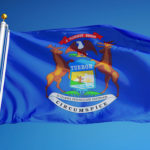 Michigan: Frank Prezzato, 68, of St. Clair Shores pleaded guilty this week to a felony charge that he voted twice during last year’s August primary election. Prezzato voted using his absentee ballot and then showed up at his polling place and voted there as well. A news release from Attorney General Dana Nessel said Prezzato “acknowledged that he acted recklessly.” As part of a plea agreement, he will serve six months of delayed probation. After that, the charges can be dismissed with prejudice — closing the case permanently — if Prezzato meets the conditions of his probation. His formal sentencing is set for the end of October. “Voting twice undermines our democratic process,” Nessel said. “My office will continue to prosecute those who violate our voting laws to ensure Michigan voters have confidence in the integrity of our elections.”
Michigan: Frank Prezzato, 68, of St. Clair Shores pleaded guilty this week to a felony charge that he voted twice during last year’s August primary election. Prezzato voted using his absentee ballot and then showed up at his polling place and voted there as well. A news release from Attorney General Dana Nessel said Prezzato “acknowledged that he acted recklessly.” As part of a plea agreement, he will serve six months of delayed probation. After that, the charges can be dismissed with prejudice — closing the case permanently — if Prezzato meets the conditions of his probation. His formal sentencing is set for the end of October. “Voting twice undermines our democratic process,” Nessel said. “My office will continue to prosecute those who violate our voting laws to ensure Michigan voters have confidence in the integrity of our elections.”
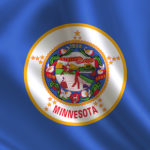 Minnesota: An Itasca County voter fraud case may head to a jury trial in October after a judge rejected the defendant’s guilty plea August 25, which would have required her to write a 10-page paper on the importance of voting. Danielle Miller, 51, of rural Nashwauk was charged in October 2024 with three felony counts of absentee voter fraud after allegedly attempting to vote for Donald Trump on behalf of her deceased mother. Miller initially pleaded not guilty to all three counts in May before petitioning to enter a guilty plea on August 21. But at her plea hearing on Monday, Miller failed to accurately state the factual basis for her plea, leading the judge to reject it. Minnesota statute requires defendants to state the factual basis before the judge can accept a guilty plea to ensure the defendant knows what they are pleading guilty to. Itasca County Attorney Jacob Fauchald said Miller told the judge she was intoxicated and that someone else mailed in the absentee ballots. He said this is not what the investigation suggests. In a subsequent court filing, Miller’s attorney Justin Braulick said she intends to use the defense of voluntary intoxication. That doesn’t absolve a defendant of the crime, but it can be considered a factor of the defendant’s state of mind or intent.
Minnesota: An Itasca County voter fraud case may head to a jury trial in October after a judge rejected the defendant’s guilty plea August 25, which would have required her to write a 10-page paper on the importance of voting. Danielle Miller, 51, of rural Nashwauk was charged in October 2024 with three felony counts of absentee voter fraud after allegedly attempting to vote for Donald Trump on behalf of her deceased mother. Miller initially pleaded not guilty to all three counts in May before petitioning to enter a guilty plea on August 21. But at her plea hearing on Monday, Miller failed to accurately state the factual basis for her plea, leading the judge to reject it. Minnesota statute requires defendants to state the factual basis before the judge can accept a guilty plea to ensure the defendant knows what they are pleading guilty to. Itasca County Attorney Jacob Fauchald said Miller told the judge she was intoxicated and that someone else mailed in the absentee ballots. He said this is not what the investigation suggests. In a subsequent court filing, Miller’s attorney Justin Braulick said she intends to use the defense of voluntary intoxication. That doesn’t absolve a defendant of the crime, but it can be considered a factor of the defendant’s state of mind or intent.
 New York: Former Bronx District leader and employee of the New York City Board of Elections, Nicole Torres, received a sentence of two years in prison for extortion and mail fraud. Having previously pled guilty, Torres faced judgment on September 2nd for her schemes that involved shaking down Bronx residents and falsifying election records. U.S. Attorney’s Office for the Southern District of New York, Jay Clayton, called out Torres for abusing her power and declared the city’s stance on purging corruption, “By shaking down Bronx residents and falsifying election records, she undermined trust in the very system New Yorkers depend on to make their voices heard.” During her criminal tenure spanning from at least 2019 to August 2024, Torres schemed her way to approximately $40,970, as the prosecution detailed. She demanded and accepted payments for allocating individuals as poll workers, often taking in $150 through various forms of payment, directing some to her or a local Bronx organization. Torres altered money orders and checks intended for the organization to deposit into her bank account.
New York: Former Bronx District leader and employee of the New York City Board of Elections, Nicole Torres, received a sentence of two years in prison for extortion and mail fraud. Having previously pled guilty, Torres faced judgment on September 2nd for her schemes that involved shaking down Bronx residents and falsifying election records. U.S. Attorney’s Office for the Southern District of New York, Jay Clayton, called out Torres for abusing her power and declared the city’s stance on purging corruption, “By shaking down Bronx residents and falsifying election records, she undermined trust in the very system New Yorkers depend on to make their voices heard.” During her criminal tenure spanning from at least 2019 to August 2024, Torres schemed her way to approximately $40,970, as the prosecution detailed. She demanded and accepted payments for allocating individuals as poll workers, often taking in $150 through various forms of payment, directing some to her or a local Bronx organization. Torres altered money orders and checks intended for the organization to deposit into her bank account.
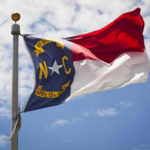 North Carolina: North Carolina and the federal government have reached an agreement over its handling of voter roll records before the 2024 election. In a proposed consent order filed this week, the parties agreed to end the case with North Carolina required to produce reports on efforts to fix missing voter information and hand over updated voter roll records to the federal government “upon request.” The federal government sued in May, alleging the state violated the Help America Vote Act by using a voter registration form that didn’t require a driver’s license number or the last four digits of a Social Security number. Federal lawyers said the state added restraints without confirming identifying information and requested that a full list of corrected records be turned over once the rolls are updated. In the proposed agreement — still subject to a federal judge’s approval — North Carolina would be required to use a voter registration form that complies with the Help America Vote Act, update its federal voter list, and contact voters with missing information to update their records. Voters with gaps in their records would still remain registered, but would have to cast provisional ballots if their information isn’t corrected before an election. The agreement aims “to ensure that the remedy complies fully with federal law, minimizes any inconvenience to voters, and ensures that each affected voter’s ballot will be counted for federal offices if the voter is otherwise eligible to vote.
North Carolina: North Carolina and the federal government have reached an agreement over its handling of voter roll records before the 2024 election. In a proposed consent order filed this week, the parties agreed to end the case with North Carolina required to produce reports on efforts to fix missing voter information and hand over updated voter roll records to the federal government “upon request.” The federal government sued in May, alleging the state violated the Help America Vote Act by using a voter registration form that didn’t require a driver’s license number or the last four digits of a Social Security number. Federal lawyers said the state added restraints without confirming identifying information and requested that a full list of corrected records be turned over once the rolls are updated. In the proposed agreement — still subject to a federal judge’s approval — North Carolina would be required to use a voter registration form that complies with the Help America Vote Act, update its federal voter list, and contact voters with missing information to update their records. Voters with gaps in their records would still remain registered, but would have to cast provisional ballots if their information isn’t corrected before an election. The agreement aims “to ensure that the remedy complies fully with federal law, minimizes any inconvenience to voters, and ensures that each affected voter’s ballot will be counted for federal offices if the voter is otherwise eligible to vote.
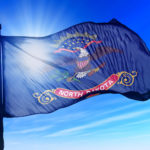 North Dakota: The Spirit Lake Nation, Turtle Mountain Band of Chippewa and three tribal citizens have formally petitioned the U.S. Supreme Court this week to review an appeals court decision that found they cannot sue the state of North Dakota for alleged voter discrimination. The tribes say that the decision, if allowed to go into effect, would not only limit their representation in the North Dakota Legislature but be a detriment to racial equality across all seven states in the 8th Circuit Court of Appeals. Private groups in these states would no longer be able to challenge state or local governments for alleged racially discriminatory voting practices. The tribes’ lawsuit, filed in 2022, accuses a legislative district map adopted by North Dakota lawmakers in 2021 of unlawfully diluting the power of Native American voters. While U.S. District Court Judge Peter Welte in a 2023 ruling agreed with the tribes and in early 2024 put an alternate map in place, the 8th Circuit Court of Appeals overturned his decision in May. The appellate court concluded that the tribes do not have standing to bring the case because a law they used to bring it, known as Section 2 of the Voting Rights Act, can only be enforced by the U.S. Department of Justice. Section 2 makes it illegal to limit someone’s voting rights on the basis of race.
North Dakota: The Spirit Lake Nation, Turtle Mountain Band of Chippewa and three tribal citizens have formally petitioned the U.S. Supreme Court this week to review an appeals court decision that found they cannot sue the state of North Dakota for alleged voter discrimination. The tribes say that the decision, if allowed to go into effect, would not only limit their representation in the North Dakota Legislature but be a detriment to racial equality across all seven states in the 8th Circuit Court of Appeals. Private groups in these states would no longer be able to challenge state or local governments for alleged racially discriminatory voting practices. The tribes’ lawsuit, filed in 2022, accuses a legislative district map adopted by North Dakota lawmakers in 2021 of unlawfully diluting the power of Native American voters. While U.S. District Court Judge Peter Welte in a 2023 ruling agreed with the tribes and in early 2024 put an alternate map in place, the 8th Circuit Court of Appeals overturned his decision in May. The appellate court concluded that the tribes do not have standing to bring the case because a law they used to bring it, known as Section 2 of the Voting Rights Act, can only be enforced by the U.S. Department of Justice. Section 2 makes it illegal to limit someone’s voting rights on the basis of race.
 Pennsylvania: Dawn Graham, former Clearfield County director of elections is suing the county for wrongful termination. Graham alleges in a federal lawsuit that she was released from her role as Director of Elections and Voter Registration for excessive absenteeism, which she said was caused by a medical condition. The lawsuit also alleges that the county did not offer her information about disability options, such as the Family and Medical Leave Act (FMLA), until after she exhausted all her personal time off in April of 2024. Her complaint said she was granted FMLA in May but reportedly needed more time off to care for her mother, who was suffering from medical issues. Graham alleges that her conditions and requests for accommodations are protected by FMLA and the Americans with Disabilities Act (ADA). She also alleges claims of discrimination, hostile work environment and failure to accommodate in her suit. When reached for comment, Commissioner Dave Glass said the county couldn’t comment on the advice of counsel. Graham is asking for lost wages including bonuses and promotions that she would have gained since being terminated in January.
Pennsylvania: Dawn Graham, former Clearfield County director of elections is suing the county for wrongful termination. Graham alleges in a federal lawsuit that she was released from her role as Director of Elections and Voter Registration for excessive absenteeism, which she said was caused by a medical condition. The lawsuit also alleges that the county did not offer her information about disability options, such as the Family and Medical Leave Act (FMLA), until after she exhausted all her personal time off in April of 2024. Her complaint said she was granted FMLA in May but reportedly needed more time off to care for her mother, who was suffering from medical issues. Graham alleges that her conditions and requests for accommodations are protected by FMLA and the Americans with Disabilities Act (ADA). She also alleges claims of discrimination, hostile work environment and failure to accommodate in her suit. When reached for comment, Commissioner Dave Glass said the county couldn’t comment on the advice of counsel. Graham is asking for lost wages including bonuses and promotions that she would have gained since being terminated in January.
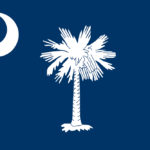 South Carolina: The South Carolina Election Commission has been temporarily blocked from sharing statewide voter data with the Department of Justice. On September 2, Circuit Court Judge Diane Goodstein granted a temporary restraining order, preventing the State Election Commission from releasing South Carolina’s voter registration list—including data on over 3.3 million people. The order follows a lawsuit filed on August 28 by Calhoun County resident Anne Crook, who sued the Election Commission to prevent the release of the data on privacy grounds. She claimed that providing it would violate her right to privacy under the South Carolina Constitution. The Department of Justice (DOJ) originally issued the state a deadline of August 21 to comply, which the state asked to extend. The DOJ has given the state a new deadline of September 5 to release the records. The temporary restraining order will block the release of data until a hearing at 10 a.m. Wednesday, September 10 at the Aiken County Courthouse.
South Carolina: The South Carolina Election Commission has been temporarily blocked from sharing statewide voter data with the Department of Justice. On September 2, Circuit Court Judge Diane Goodstein granted a temporary restraining order, preventing the State Election Commission from releasing South Carolina’s voter registration list—including data on over 3.3 million people. The order follows a lawsuit filed on August 28 by Calhoun County resident Anne Crook, who sued the Election Commission to prevent the release of the data on privacy grounds. She claimed that providing it would violate her right to privacy under the South Carolina Constitution. The Department of Justice (DOJ) originally issued the state a deadline of August 21 to comply, which the state asked to extend. The DOJ has given the state a new deadline of September 5 to release the records. The temporary restraining order will block the release of data until a hearing at 10 a.m. Wednesday, September 10 at the Aiken County Courthouse.
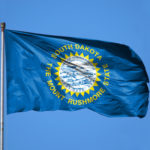 South Dakota: Federal District Court Judge Camela Theeler has ruled that a new law that moved the deadline for initiated measures or amendments to qualify for the ballot in South Dakota violated the U.S. Constitution. Lawmakers moved the deadline for filing ballot measure petitions from the first Tuesday in May to the first Tuesday in February in election years with passage of House Bill 1184. Dakotans for Health group argued that the new deadline shortened the amount of time it takes for the backers of ballot measures to obtain the signatures they need to qualify a measure for the ballot, infringing on its free speech rights. Among the group’s complaints was that the shortened timeframe for collecting signatures concentrated that window during South Dakota’s winter, when petition gatherers are outside during sometimes harsh weather conditions. “We are asking the court to protect the right of South Dakotans to engage in direct democracy by issuing an injunction to stop the enforcement of HB 1184,” Dakotans for Health co-found Rick Weiland said at the time of challenging the law. “If this law is allowed to stand, it will severely restrict our ability to gather the signatures needed to bring important issues before voters. The people of South Dakota deserve better.” Faced with a nine-month deadline under HB 1184, Theeler agreed that it was still too restrictive. She also agreed that Dakotans for Health, which has sponsored several ballot measures, had standing to bring the challenge, finding the group faced “concrete, particularized and actual injury from the filing deadlines created by HB 1184.” Nor was Theeler convinced that extending the deadline for petitions by three months would allow enough time to resolve a conflict over the legitimacy of those petitions. “However,” she wrote in her ruling, “even if this court were to agree that the state has a regulatory interest allowing citizens more time to litigate petition challenges prior to an election, the state has not shown that a nine-month filing deadline satisfies that interest. The nine-month deadline simply allows for three more months of litigation that may or may not result in a final resolution before an election. The state acknowledges as much.” Theeler ordered Secretary of State Monae Johnson not to enforce the provisions of HB 1184, effectively keeping the deadlines for ballot measures in place at the first Tuesday of May. The state has not indicated if it will appeal.
South Dakota: Federal District Court Judge Camela Theeler has ruled that a new law that moved the deadline for initiated measures or amendments to qualify for the ballot in South Dakota violated the U.S. Constitution. Lawmakers moved the deadline for filing ballot measure petitions from the first Tuesday in May to the first Tuesday in February in election years with passage of House Bill 1184. Dakotans for Health group argued that the new deadline shortened the amount of time it takes for the backers of ballot measures to obtain the signatures they need to qualify a measure for the ballot, infringing on its free speech rights. Among the group’s complaints was that the shortened timeframe for collecting signatures concentrated that window during South Dakota’s winter, when petition gatherers are outside during sometimes harsh weather conditions. “We are asking the court to protect the right of South Dakotans to engage in direct democracy by issuing an injunction to stop the enforcement of HB 1184,” Dakotans for Health co-found Rick Weiland said at the time of challenging the law. “If this law is allowed to stand, it will severely restrict our ability to gather the signatures needed to bring important issues before voters. The people of South Dakota deserve better.” Faced with a nine-month deadline under HB 1184, Theeler agreed that it was still too restrictive. She also agreed that Dakotans for Health, which has sponsored several ballot measures, had standing to bring the challenge, finding the group faced “concrete, particularized and actual injury from the filing deadlines created by HB 1184.” Nor was Theeler convinced that extending the deadline for petitions by three months would allow enough time to resolve a conflict over the legitimacy of those petitions. “However,” she wrote in her ruling, “even if this court were to agree that the state has a regulatory interest allowing citizens more time to litigate petition challenges prior to an election, the state has not shown that a nine-month filing deadline satisfies that interest. The nine-month deadline simply allows for three more months of litigation that may or may not result in a final resolution before an election. The state acknowledges as much.” Theeler ordered Secretary of State Monae Johnson not to enforce the provisions of HB 1184, effectively keeping the deadlines for ballot measures in place at the first Tuesday of May. The state has not indicated if it will appeal.
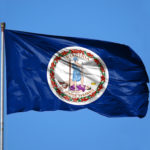 Virginia: U.S. District Court for the Eastern District of Virginia judge Patricia Tolliver Giles rejected defendants’ attempts to dismiss a voting rights case that first surfaced last summer when Gov. Glenn Youngkin ordered a purge of voter rolls that the U.S. Department of Justice, Democratic Virginia lawmakers and civil rights advocates said it was too close to Election Day. Giles is allowing the case to proceed and move into the next phase of legal scrutiny. Filed by the Virginia Coalition for Immigrants’ Rights (VACIR), Virginia’s chapter of the League of Women Voters, and African Communities Together, the groups assert that Youngkin’s administration violated the federal National Voter Registration Act by removing people from voter rolls within 90 days of last November’s elections. The federal law entails a 90-day “quiet period” that both former President Joe Biden’s administration and the Virginia groups’ suits alleged Youngkin violated. Youngkin had issued an executive order on Aug. 7, 2024 — exactly 90 days before the 2024 elections — before touting it on Fox News that same day.
Virginia: U.S. District Court for the Eastern District of Virginia judge Patricia Tolliver Giles rejected defendants’ attempts to dismiss a voting rights case that first surfaced last summer when Gov. Glenn Youngkin ordered a purge of voter rolls that the U.S. Department of Justice, Democratic Virginia lawmakers and civil rights advocates said it was too close to Election Day. Giles is allowing the case to proceed and move into the next phase of legal scrutiny. Filed by the Virginia Coalition for Immigrants’ Rights (VACIR), Virginia’s chapter of the League of Women Voters, and African Communities Together, the groups assert that Youngkin’s administration violated the federal National Voter Registration Act by removing people from voter rolls within 90 days of last November’s elections. The federal law entails a 90-day “quiet period” that both former President Joe Biden’s administration and the Virginia groups’ suits alleged Youngkin violated. Youngkin had issued an executive order on Aug. 7, 2024 — exactly 90 days before the 2024 elections — before touting it on Fox News that same day.
Opinions This Week
National Opinions: Presidential interference | The Big Lie | Vote by mail, II
Alaska: Ranked choice voting
Colorado: Vote by mail
Florida: Vote by mail
Idaho: Vote by mail
New Hampshire: Voter access
New Jersey: Vote by mail
Pennsylvania: Vote by mail, II
U.S. Virgin Islands: Board of elections
Utah: Vote by mail
Washington: Vote by mail
Wyoming: Election integrity
Call for Papers and Proposals
Call for Session Proposals for the Students Learn Students Vote Coalition’s 2025 National Student Vote Summit: The Students Learn Students Vote (SLSV) Coalition invites session proposals for the 2025 National Student Vote Summit (NSVS) — our annual nonpartisan in-person gathering of students, campus professionals, nonprofit partners, and movement leaders committed to ensuring that every college student has easy and equal access to participate in every election. This year’s summit will bring us together to reflect on where our nonpartisan movement stands, explore urgent challenges, and build the shared strategies we need heading into 2026 and beyond. We’re seeking session proposals that offer practical tools, bold ideas, and community-rooted insights to help attendees strengthen their nonpartisan student voting work. Please note: This Request for Proposals (RFP) is separate from the student poster session proposal process. Poster sessions are reserved for student presenters only and follow a different submission process, which you can find outlined [here]. Students are welcome to be part of a session proposal through this RFP only if they are collaborating with a campus staff/faculty member, or a nonprofit staff member. In those cases, the proposal must be submitted by the staff or faculty collaborator. If you’re a student who does not currently have a faculty, staff, or nonprofit collaborator but have a session idea you’d like to propose, please reach out to Bianca at bianca@slsvcoalition.org. We’re happy to work with you to identify a potential partner. Deadline: September 15.
Upcoming Events
Fall 2025 Association of Arkansas Counties Circuit Clerks (AACC) Meeting: When: September 9-13. Where: Logan.
Maine Town & City Clerks Networking Day & Annual Meeting: When: September 10. Where: Brewer.
The Risk of Federal Interference in the 2026 Midterm Elections: The Safeguarding Democracy Project at UCLA Law promotes research, collaboration, and advocacy aimed at ensuring continued free and fair elections in the United States. This webinar will be moderated by Rick Hasen and feature: Ben Haiman, executive director, Center for Public Safety and Justice·UVA Center for Public Safety and Justice; Liz Howard director of Partner Engagement, Elections & Government·NYU Law Brennan Center for Justice; and Stephen Richer, senior practice fellow in American Democracy, Spring 2025·Ash Center for Democratic Governance and Innovation, Harvard Kennedy School. When: September 16, 3:15pm Eastern. Where: Online.
Wyoming Association of County Officers Conference: When: September 23-25. Where: Rock Springs.
Lessons from the 2024 Elections for 2026 and Beyond: A Conversation with Nate Persily: The Safeguarding Democracy Project at UCLA Law promotes research, collaboration, and advocacy aimed at ensuring continued free and fair elections in the United States. This webinar will be a conversation with Nate Persily, Stanford Law School & Rick Hasen, UCLA School of Law. When: October 7, 3:15pm Eastern. Where: Online.
Leah Litman on the Supreme Court: University of Michigan Law School Professor Leah Litman will discuss her provocative new book Lawless: How the Supreme Court Runs on Conservative Grievance, Fringe Theories, and Bad Vibes, which argues that the Court has abandoned legal reasoning in favor of political grievances dressed up in judicial language. With her signature blend of serious legal analysis and irreverent wit, Litman will discuss how major Supreme Court decisions are made. Litman will be in dialogue with UCLA Law Professor Rick Hasen. When: October 14, 7:30pm Pacific. Where: The Hammer Museum, Los Angeles.
Protecting the Election: AI and Governance Conference at WashU: Join us for this two-day in-person research and practitioner conference at WashU on October 16-17, 2025, to discuss research regarding AI and governance and how this applies to U.S. elections. Research topics include how chatbots can be used to engage with voters, how social media influences voters, what the electorate knew (or did not know) about the candidates and issues during recent elections, misinformation in elections, rhetoric about election integrity, and AI strategies for the administration of elections. We will also hear from practitioners during the conferences about their experiences with and needs for AI in recent elections and their intentions for future use of AI in elections. When: Oct. 16-17. Where: St. Louis.
Redistricting and Re-Redistricting Controversies and the 2026 Elections: The Safeguarding Democracy Project at UCLA Law promotes research, collaboration, and advocacy aimed at ensuring continued free and fair elections in the United States. This webinar will be moderated by Rick Hasen and feature: Guy-Uriel Charles, Harvard Law Moon Duchin, The Data and Democracy Lab Data and Democracy Research Initiative, U of Chicago Michael Li, NYU Law Brennan Center for Justice Nicholas Stephanopoulos, Harvard Law. When: October 16, 3:15pm Eastern. Where: Online.
Symposium at Auburn University: The 5th Biennial Auburn Symposium in Election Administration will be held October 26-28, 2025 at the Hotel at Auburn University. The Symposium launched in 2015 to foster conversation about critical issues that impact American democratic institutions, support the development of common understanding and language across diverse professional communities engaged in the practice of election administration, and promote dialogue between those who conduct elections and those who study the way elections operate. The series is held in odd-numbered years on the Auburn University campus. This year, the theme is Innovative Election Administration Funding Solutions, exploring new, practical, and sustainable solutions to address the critical issue of adequate funding of election administration across local, state, and/or federal levels in the United States. Questions: elect1@auburn.edu. When: October 26-28. Where: Auburn, Alabama.
NDACo Annual Conference [North Dakota]: When: October 26-28.
Media, Social Media, and the Changing Election Information Environment in 2026: The Safeguarding Democracy Project at UCLA Law promotes research, collaboration, and advocacy aimed at ensuring continued free and fair elections in the United States. This webinar will be moderated by Rick Hasen and feature: Danielle Citron, UVA Law, Brendan Nyhan, Dartmouth, and Amy Wilentz, UCI Emerita. When: October 30, 3:15pm Eastern. Where: Online.
2025 National Student Vote Summit– The Students Learn Students Vote Coalition is proud to host the 10th annual National Student Vote Summit. At the summit, we’ll unite nonprofit leaders, campus staff, administrators, faculty members, philanthropic partners, election officials, and students from across the country to continue a decade-strong tradition of collective action and impact. Building on the momentum and insights from our 2024 Summit—where more than 300 nonpartisan student vote leaders took on challenges like local election turnout, combating misinformation, and reducing post-election disengagement — this milestone gathering aims to amplify our collective power and chart a course for an even more impactful 2026. We’ll kick off the Summit with the ALL IN Campus Democracy Challenge Awards Ceremony, celebrating college student voting achievements nationwide and setting the stage for a memorable experience. Awards will be presented to college and university campuses, student leaders and individual champions for their nonpartisan contributions to increasing student voter engagement in the 2024 Election. Thanks to our incredible host partners at the University of Maryland, College Park, we’ll gather once again at UMD’s Stamp Student Union. There, in collaboration with TerpsVote, we’ll create an inspiring space for learning, connection, and celebration. Every participant will leave equipped with the tools, relationships, and momentum to make 2026 a historic year for nonpartisan student voter engagement. When: November 12-15. Where: College Park, Maryland.
57th Annual Tennessee County Officials Association (COAT) Conference: When: November 16-19. Where: Pigeon Forge.
The Supreme Court, the Voting Rights Act, and the 2026 Elections: The Safeguarding Democracy Project at UCLA Law promotes research, collaboration, and advocacy aimed at ensuring continued free and fair elections in the United States. This webinar will be moderated by Rick Hasen and feature: Ellen Katz, University of Michigan, Lenny Powell, Native American Rights Fund (NARF), and Deuel Ross, Legal Defense Fund. When: November 18, 3:15pm Eastern. Where: Online.
2025 New England Association of City and Town Clerks Conference: When: November 19-21. Where: Bangor, Maine.
Job Postings This Week
electionlineWeekly publishes election administration job postings each week as a free service to our readers. To have your job listed in the newsletter, please send a copy of the job description, including a web link to mmoretti@electionline.org. Job postings must be received by 5pm on Wednesday in order to appear in the Thursday newsletter. Listings will run for three weeks or till the deadline listed in the posting.
Administrative Specialist, Leon County, Florida– The Administrative Specialist provides a wide range of administrative support, coordination, and project management to the Leon County Supervisor of Elections Office (SOE). This position works under the supervision of the Human Resources Coordinator to support human resources, accounting, training, scheduling, clerical, and compliance monitoring efforts for the SOE. The office is home to approximately twenty-five, year-round staff members supplemented during election years by dozens of temporary, seasonal staff. The position requires great attention to detail, outstanding communication skills, comfort working with a wide variety of people, and proficiency with data and spreadsheets. Application: For the complete job listing and to apply, click here.
Administrative Specialist, King County, Washington – The Department of Elections is searching for energetic and resourceful professionals who like to “get stuff done”. The Administrative Specialist II positions in the Voter Services Department combines an exciting, fast-paced environment with the opportunity to cultivate talents and apply a variety of skills. The ideal candidate will have a desire to help ensure the democratic process through public service. They will thrive in an innovative environment and will not hesitate to roll up both sleeves, work hard, have fun, and get the job done. Job Duties: Provide excellent customer service to internal and external customers in person, via telephone, and via e-mail by processing voter registrations, communicating election program information and explaining election procedures, guidelines and regulations. Provide backup support for translation and/or interpreting and proof election-related documents and web materials from English to Chinese (traditional text). This includes but is not limited to voter registration information, letters, and other correspondence, notice of elections, ballot titles, voters’ pamphlet information, candidate statements, ballot measures, etc. to limited English speaking (LES) voters. Perform production-level computer work which includes accurate data entry, retrieving and editing records. Organize and coordinate work activities and assist with providing training and one-on-one instruction to diverse staff. Set up records and file documents in both electronic and paper formats. Review documents for proper format, accuracy, completion, eligibility, and other legal guidelines. Audit work group data entry activities to ensure performance quality and efficiency of work. Utilize spreadsheets, word documents and reports to track and document performance data. Research and resolve questions from staff, citizens and stakeholders. Document and improve work processes, procedures and instructions. Salary: $27.03 – $34.40 Hourly. Application: For the complete job listing and to apply, click here.
Assistant Registrar of Voters, Santa Clara County, California– Under general direction, the Assistant Registrar of Voters supports the planning, organization, and oversight of the County Registrar of Voters Department. This executive leadership position reports directly to the Registrar of Voters and plays a key role in administering and managing departmental operations. The department is responsible for voter registration, the conduct of elections, and related electoral services. The Assistant Registrar of Voters helps ensure that all activities are carried out efficiently, accurately, and in compliance with applicable laws and regulations. This position may assume the responsibility of the Department in the absence of the Registrar of Voters. Salary: $194,184.52 – $249,180.63. Application: For the complete job listing and to apply, click here.
Community Engagement Coordinator, North Charleston, South Carolina– Partner with the Community Engagement Manager to identify and expand non-partisan community relationships. Cultivate connections with local businesses and civic organizations to boost visibility and support. Solicit and analyze community feedback to enhance outreach strategies. Create brochures, flyers, presentations, and digital content to educate the public about elections and voting procedures.Collaborate with the Marketing and Communications Manager to maintain clear, consistent, and timely messaging across platforms. Manage and update the outreach section of the agency’s website. Deliver presentations and training during outreach events. Plan and coordinate mid-scale public events such as National Voter Registration Day and poll worker appreciation initiatives. Represent BVRE at outreach events, tabling opportunities, and community meetings. Track outreach activity and report on engagement metrics and outcomes. Support special projects including the “I Voted” sticker contest, Adopt a Polling Location, and poll worker recruitment. Research best practices to enhance and expand outreach programming. Assist in maintaining a centralized repository of outreach materials and resources. Salary: $50,440 – $66,060. Application: For the complete job listing and to apply, click here.
Customer Success Manager, ElectSure– ElectSure, a leading provider of training and technology solutions for election administration offices, is seeking a proactive and empathetic Customer Success Manager (CSM) to lead client satisfaction and success across our service lifecycle. This is a high-impact role designed for a results-oriented professional who thrives in a fast-paced, startup environment and is passionate about delivering excellence to public-sector clients. Application: For the complete job listing and to apply, click here.
Data Scientist Manager, CIRCLE– This is a limited term position for two years, with the possibility of extension contingent on grant funding. This position is not eligible for severance pay. CIRCLE, the Center for Information & Research on Civic Learning and Engagement at Tisch College within Tufts University, is a non-partisan, independent research organization focused on youth civic engagement in the United States. CIRCLE conducts extensive research that examines how young people in the United States develop knowledge, skills, and dispositions for effective democratic engagement and leverages that research to improve opportunities for all young people to acquire and use the skills and knowledge they need to meaningfully participate in civic life. CIRCLE is especially concerned with understanding, addressing, and ultimately eliminating the systemic barriers that keep some young people marginalized from and underrepresented in civic life. CIRCLE covers a broad range of disciplines and fields, from K-12 civic education, youth voting, youth organizing, youth and civic media, to community characteristics that promote civic development. The Data Scientist/Manager serves as CIRCLE’s technical anchor for all data-intensive research initiatives, bridging advanced analytics with strategic leadership in youth civic engagement research. This role owns the full data lifecycle – from architecting robust systems for all record datasets to translating complex findings into policy-relevant insights. The position requires equal mastery of technical execution (R, SQL, BigQuery) and collaborative leadership, guiding both internal teams and external partners through data challenges in a fast-paced research environment. Salary Range: $79,600 to $119,500. Application: For the complete job listing and to apply, click here.
Deputy of Elections, Yolo County, California– Under administrative direction of the Assessor/Clerk-Recorder/Registrar of Voters, the Deputy of Elections assists the Assessor/Clerk-Recorder/Registrar of Voters in the planning, administration, direction, and coordination of the Elections Branch; develops and implements program policy, procedures, and strategic initiatives; oversees major program areas and ensures compliance with applicable laws and regulations; assists the Assessor/Clerk-Recorder/Registrar of Voters with the administration and direction of the department; and may serve as an Assessor/Clerk-Recorder/Registrar of Voters designee or in their absence. An ideal candidate is a highly adaptable and meticulous elections professional with proven leadership experience navigating the rapid pace and strict deadlines of election administration. They possess strong technical skills and a proactive approach to problem-solving, ensuring the accurate and timely execution of all election-related duties. In addition, the following knowledge and abilities are associated with this position. Salary: $111,321.60 – $135,304.00 Annually. Application: For the complete job listing and to apply, click here.
Election Analyst, Charleston County, South Carolina– Are you a detail-oriented professional with a passion for public service and a knack for technology? Join us as an Election Analyst and play a vital role in ensuring the security, efficiency, and accuracy of elections in our community. At the Board of Voter Registration and Elections, we are not just managing elections—we’re shaping the foundation of democracy. As an award-winning office known for our commitment to excellence and innovation, we invite you to be part of a team that is redefining what it means to serve the public. Our mission is to daily serve the Charleston County voting constituency with Vigilance, Objectivity, and Transparency in a manner that promotes due diligence Excellence in all aspects of Elections Management. Why Join Us: 1. Trusted Stewards of Democracy: We lead the way in secure, accessible, and transparent elections, earning statewide and national recognition for our performance. 2. Frontline Impact: As an Election Analyst, your work will directly impact how voters experience democracy—from the reliability of equipment to the confidence in results. 3.Culture of Innovation: We’re constantly improving election systems, training programs, and precinct operations to ensure our voters get the best experience possible. Salary: $45,052 – $58,988. Application: For the complete job listing and to apply, click here.
Election Assistant, St. Charles County, Missouri – The purpose of this position is to assist the Director of Elections in the Administration of elections. Lead and train intermittent employees at all satellite voting sites. Set up and manage election equipment, on demand ballot printers, poll pad voter check in stations and ADA compliant ballot marking devices at satellite voting sites. Lead Initiative Petition temporary staff. This position acts under the supervision of the Assistant Director of Elections. Salary: $45,192.76. Application: For the complete job listing and to apply, click here.
Information Technology Specialist, Leon County, Florida– The Information Technology Specialist provides support for a wide variety of technologies, primarily specializing in desktop hardware. This technical support position, as part of the Information Technology team at the Leon County Supervisor of Elections Office (SOE), deploys computer images, provides support for desktop computers, and assists with security and protection of SOE technology and infrastructure. Salary: $40,000 – $50,000. Application: For the complete job listing and to apply, click here.
Organizer, Minnesota– We are looking for a creative and collaborative Organizer to join the Common Cause team in Minnesota. This is a key role supporting our organizing and outreach programs and promoting civic engagement across the state. This is a full-time role reporting to the Executive Director, Minnesota and is based in Minnesota, with a preference for candidates located in Olmsted County or St. Cloud, with an expectation to travel around Minnesota at least 2 days per week, with a maximum of 5 days a calendar week during the legislative session, and peak summer engagement season. This is a termed position, starting on November 1, 2025 and ending October 31, 2027. Salary: $63,860 – $80,340 a year. Application: For the complete job listing and to apply, click here.
Policy Director & Counsel, Voting & Fair Representation, Common Cause– We are looking for a Policy Director & Counsel, Voting & Fair Representation to join our work to advance multi-state and federal policy wins on voting rights, election administration, and fair representation issues. This role will take ownership of issues within the Voting & Fair Representation pillar—from ideation through execution. The Policy Director & Counsel will collaborate with departments and teams across the organization, providing strategic guidance and legal analysis, conducting research to strategically support our issues, and amplifying our issues externally. This role is ideal for a proactive thinker who thrives on anticipating what’s next in the democracy landscape and translating research and analysis into actionable strategies. This is a full-time role reporting to the Senior Policy Director, Voting & Fair Representation; this role is remote anywhere within the lower 48 United States, though we have a strong preference for someone who is based in DC and who can work in our office at least two days per week. We hope our new Policy Director & Counsel will start in December. Salary: $108,150 – $128,750 a year. Application: For the complete job listing and to apply, click here.
Precinct Manager, Charleston County, South Carolina– Are you driven by a passion for democracy and civic engagement? Join the Board of Voter Registration and Elections as a Precinct Manager and play a critical role in delivering seamless, fair, and accessible elections. Key responsibilities: Poll worker recruitment and management; Polling location management; Liaison and community engagement; Support for election operations on Election Day and early voting; and Team leadership. The Board of Voter Registration and Elections is an award-winning organization dedicated to excellence in electoral processes. Our mission is to daily serve the Charleston County voting constituency with Vigilance, Objectivity, and Transparency in a manner that promotes due diligence Excellence in all aspects of Elections Management. We are committed to continuous improvement, innovative practices, and exceptional service to our community, ensuring every voter’s voice is heard. Salary: $68,140 – $89,252. Application: For the complete job listing and to apply, click here.
Program Manager, Common Cause, Georgia– We are looking for a collaborative and highly organized Program Manager to join the Common Cause team in Georgia. In this role, you will track policy developments at the state and local level and provide analysis of the impact of proposed and enacted policies through collecting data and evaluating the impact on Georgia’s communities, lead and implement state programmatic efforts, manage relationships with key stakeholders, and coordinate advocacy activities to support our programmatic agenda. You will play a key part in advancing our mission to protect democracy and ensure the fair and equitable representation of all communities. This is a full-time role reporting to the Policy Director and based in Georgia, with an expectation to travel around the state up to three days per week. We hope our new Program Manager will start in November. Salary: $82,400 – $97,850 a year. Application: For the complete job listing and to apply, click here.
Research Associate, CEIR– CEIR is seeking a dedicated and qualified Research Associate – Data Analysis to join our team (highly qualified candidates may be considered for a Senior Research Associate position). The Research Associate will work under the direction of the Research Director and in collaboration with other colleagues to support CEIR’s research initiatives. These initiatives include research and data analysis related to election administration policy, procedures, and practices. As an integral member of the Research team, the Research Associate – Data Analysis will support CEIR’s mission by performing thoughtful data collection, analysis, and visualization for research reports, presentations, and other materials for CEIR’s diverse audience of election officials, policymakers, the media, and key stakeholders. Salary: $53,000-69,000. Deadline: September 15. Application: For the complete job listing and to apply, click here.
Senior Organizer, Colorado, Common Cause– We are seeking a proactive, collaborative, English and Spanish-speaking Senior Organizer to join the Common Cause team in Colorado. In 2025, Common Cause successfully led an effort to pass the nation’s 8th state-level Voting Rights Act. The Colorado Voting Rights Act protects Colorado from threats to dismantle the federal Voting Rights Act of 1965 and creates stronger protection against voter discrimination. The Colorado Senior Organizer will be critical in driving public education and voter outreach efforts around the new law and executing nonpartisan voter protection efforts in 2026. This is a full-time, fixed-term position for a period of 12 months, from November 15, 2025, to November 15, 2026. The role reports to the State Director and is based in Colorado with a preference for this individual to work out our Denver office at least 1 day per week. They will also travel to communities across the state on a frequent basis, with the possibility of occasional overnight travel. Salary: $72,100 – $89,610 a year. Application: For the complete job listing and to apply, click here.
Training Program Manager, Charleston County, South Carolina– Democracy works best when every election runs flawlessly—and that starts with exceptional training. As Training Manager for the Board of Voter Registration and Elections, you’ll empower our poll managers and staff to deliver elections that are fair, accessible, and trusted by every voter in Charleston County. The Board of Voter Registration and Elections is an award-winning organization dedicated to excellence in electoral processes. Our mission is to daily serve the Charleston County voting constituency with Vigilance, Objectivity, and Transparency in a manner that promotes due diligence Excellence in all aspects of Elections Management. We believe that people are the foundation of successful elections. That’s why training is not just a task—it’s a core function of our mission. When our teams are prepared, voters can be confident that their voice will be heard, and their ballot counted. As Training Manager, you are not simply teaching procedures—you are building trust in the democratic process. You will design and deliver training that helps every poll manager, staff member, and Board member understand the importance of their role, perform it with confidence, and meet the highest standards of service to our voters. Salary: $68,140.00 – $82,000.00 Annually. Application: For the complete job listing and to apply, click here.
Voter Registration and Absentee Manager, Charleston County, South Carolina– Are you driven by public service and committed to ensuring the accuracy of voter registration? Join us as the Voter Registration and Absentee Manager and lead a team dedicated to upholding the integrity of our processes. Welcome to the Board of Voter Registration and Elections, where we are not just an agency, but a dynamic force committed to excellence in democracy. As an award-winning organization, we pride ourselves on our relentless pursuit of improvement to better serve the voters in our community. This role is pivotal to ensuring secure, accurate, and accessible voter registration and absentee voting services. Salary: $70,000.00 – $82,000.00 Annually. Application: For the complete job listing and to apply, click here.
Voter Services Clerk, Seminole County, Florida – The Voter Services Clerk serves as the primary customer service representative for the Seminole County Supervisor of Elections Office. This position is responsible for the accurate maintenance and entry of voter registration information, ensuring the integrity and confidentiality of voter data, and providing essential assistance to voters, including answering inquiries and processing voter-related documents. The Clerk will also be involved in various clerical and administrative tasks associated with voter services, ensuring compliance with applicable state and federal election laws. Responsibilities include processing new voter registrations, updates or changes to existing registrations, vote-by-mail ballot requests, and returns, as well as petition verifications and other voter record-related tasks, providing accurate voter registration and election information to the public in person, by phone, or via mail, in accordance with Florida state laws, regulations, and procedures, conducting research to resolve issues related to voter registration records, utilizing sources both within the voter database and external government websites or online resources, ensuring the accuracy and completeness of voter registration records by verifying information, validating signatures on candidate and initiative petitions, maintaining and update street maintenance files to ensure an up-to-date and accurate residential address database for Seminole County. Salary: $17 – $22 Hourly. Application: For the complete job listing and to apply, click here.
Marketplace
electionline provides no guarantees as to the quality of the items being sold and the accuracy of the information provided about the sale items in the Marketplace. Ads are provided directly by sellers and are not verified by electionline. If you have an ad for Marketplace, please email it to: mmoretti@electionline.org